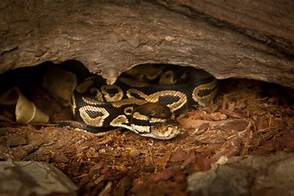Arctic Fox Pet Safety
Arctic foxes are beautiful and captivating creatures, but are they suitable as pets? This comprehensive guide explores the essential aspects of Arctic fox ownership, addressing their unique needs, temperament, health considerations, and legal implications. Discover the challenges and responsibilities involved in providing a suitable home for these fascinating animals.

Temperament and Behavior
1. Active and Playful: Arctic foxes are known for their playful and energetic nature. They enjoy exploring and engaging in various activities, requiring ample space and opportunities for physical exercise.
2. Intelligence and Curiosity: Arctic foxes are highly intelligent and curious animals. They exhibit problem-solving abilities and a strong desire to investigate their surroundings. Providing mental stimulation through interactive toys and enrichment activities is crucial.
3. Vocalization: Arctic foxes are vocal animals and communicate through a variety of sounds, including yips, barks, and growls. These vocalizations can be frequent and may disturb some individuals.
Health and Diet
1. Specialized Diet: Arctic foxes have unique dietary requirements. They thrive on a diet rich in meat, organs, and bones. Providing a balanced and nutritious diet is essential for their well-being.
2. Susceptibility to Diseases: Arctic foxes are susceptible to various diseases, including rabies, canine distemper, and mange. Regular veterinary checkups and vaccinations are crucial for maintaining their health.
3. Grooming Needs: Arctic foxes have thick fur that requires regular grooming. Brushing their coats helps prevent matting and keeps them clean. Additionally, regular nail trims are necessary to maintain their claws.
Exercise and Environment
1. Spacious Enclosure: Arctic foxes need a spacious and secure enclosure that allows them to move freely and engage in physical activity. Providing an outdoor run or a large indoor area is ideal.
2. Cold Temperatures: Arctic foxes are adapted to cold climates and prefer temperatures below freezing. Ensuring a cool environment is essential for their comfort and well-being.
3. Socialization: Arctic foxes are social animals and require regular interaction. Providing opportunities for socialization with other Arctic foxes or compatible pets is important for their emotional well-being.
Legal Considerations
1. Local Laws: Ownership of Arctic foxes may be restricted or even prohibited in certain areas due to their exotic nature. Researching local laws and regulations is essential before considering an Arctic fox as a pet.
2. Permits and Licenses: In some jurisdictions, permits or licenses may be required to own an Arctic fox. Acquiring the necessary documentation is crucial to ensure compliance with local regulations.
3. Ethical Concerns: Keeping Arctic foxes in captivity raises ethical concerns regarding their welfare. Weighing the animal's needs and rights against the desire for exotic pet ownership is essential.
In conclusion, Arctic foxes are captivating animals with unique needs and challenges. Their active temperament, specialized diet, grooming requirements, and susceptibility to diseases necessitate a dedicated and knowledgeable owner. Additionally, legal considerations and ethical concerns must be taken into account before deciding on Arctic fox ownership. Ultimately, providing a suitable and enriching environment for these remarkable creatures requires a deep commitment to their well-being and a thorough understanding of their specific needs.
Declaration: All article resources on this website, unless otherwise specified or labeled, are collected from online resources. If the content on this website infringes on the legitimate rights and interests of the original author, you can contact this website to delete it.




